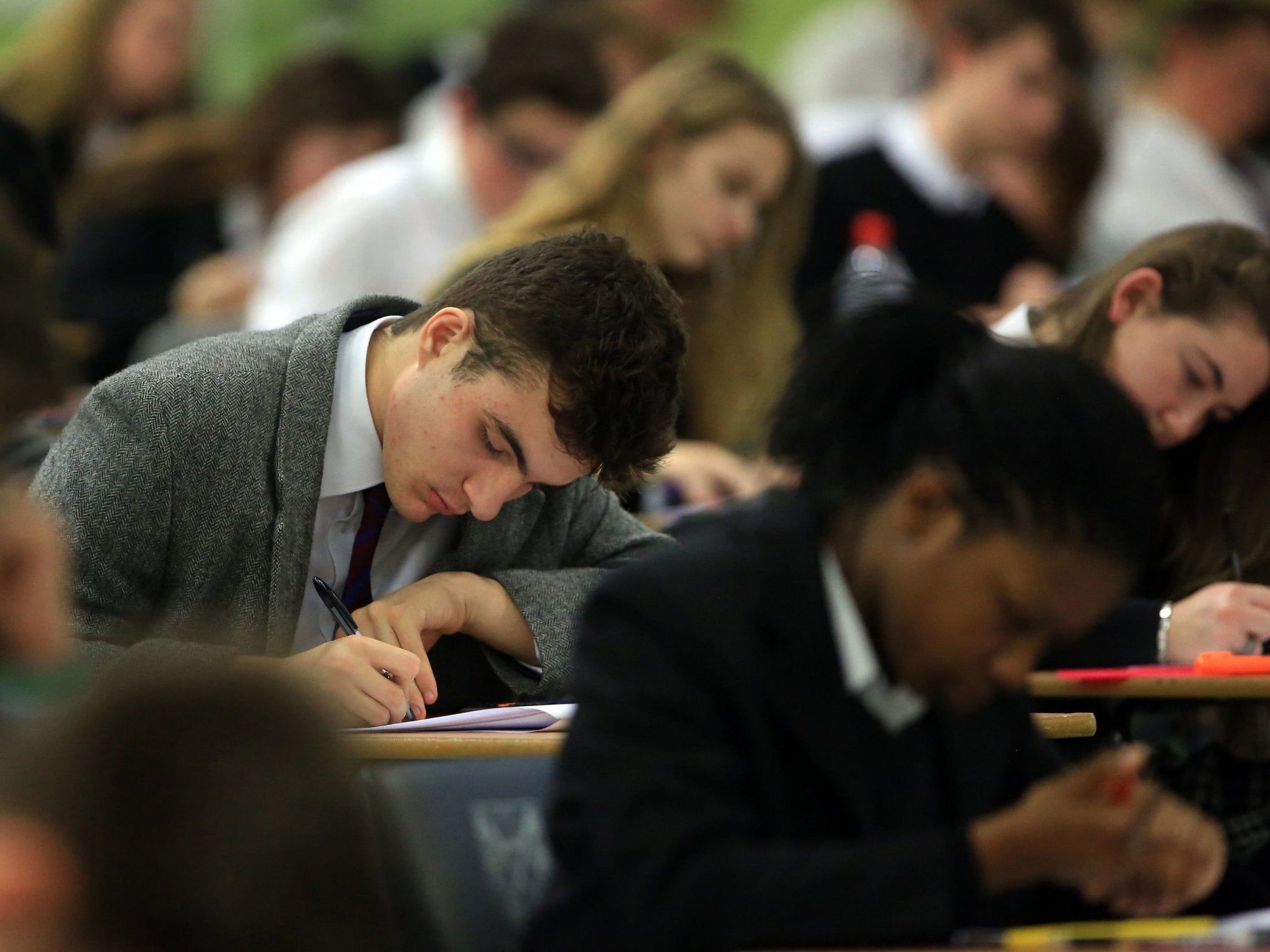Formal exams no better than teacher assessments at predicting pupil success, study finds
Current ‘testing culture’ in UK schools questioned by researchers

Formal exams in school are no better than teacher assessments at predicting pupils’ educational success, according to a new study.
Teachers predict pupil success at GCSE and A-level just as well as Sats exams scores, raising questions about whether the benefits of standardised exams outweigh the costs, the research suggests.
Assessments from educators correlated strongly with test results from age seven to 14, with both measures equally effective at predicting exam success, the study, published in the Journal of Child Psychology and Psychiatry, found.
As a result, the researchers from King’s College London are calling for a reduction in testing in schools.
Their call comes as tens of thousands of pupils across the country start their Sats, GCSE and A-level exams this week.
The study found that teacher assessments predicted around 90 per cent of the differences between pupils in exam performance at GCSE and A-level.
Dr Kaili Rimfeld, co-lead researcher from the Institute of Psychiatry, Psychology and Neuroscience (IoPPN) at King’s College London, said: “We have shown for the first time that teacher assessments predict GCSE and A-level results just as well as earlier exam scores. The fact that exam scores correlate so highly with the teacher assessments raises questions about the value of the testing culture that characterises compulsory education in the UK.”
Teachers are required to assess their pupils until age 14, and children sit standardised exams throughout school, including Sats at age seven and 11, GCSEs at age 16 and A-levels at age 18.
Dr Margherita Malanchini, co-lead researcher from the IoPPN and the University of Texas at Austin, said: “Trusting teachers to implement the curriculum and monitor progress could benefit the wellbeing of pupils and teachers and help to bring joy back to the classroom.”
It comes after Labour pledged to scrap the controversial Sats exams in English primary schools.
Jeremy Corbyn said the “regime of extreme pressure testing” would be abolished amid reports of children crying, vomiting and having nightmares.
And last month members of the National Education Union backed plans for a possible boycott of all high stakes tests in primary school in England next year.
The union argues that summative tests in primary schools, including Sats exams, are “educationally flawed” and “increase stress” for pupils.
A Department for Education spokesperson said: “Exams are an essential part of ensuring that children and young people are taught the knowledge and skills they need in order to succeed in further study and in later life. Schools should encourage all pupils to work hard and achieve well, but this should not be at the expense of their wellbeing. They should provide appropriate support as part of their whole school approach to supporting the wellbeing and resilience of pupils.”
Subscribe to Independent Premium to bookmark this article
Want to bookmark your favourite articles and stories to read or reference later? Start your Independent Premium subscription today.

Join our commenting forum
Join thought-provoking conversations, follow other Independent readers and see their replies